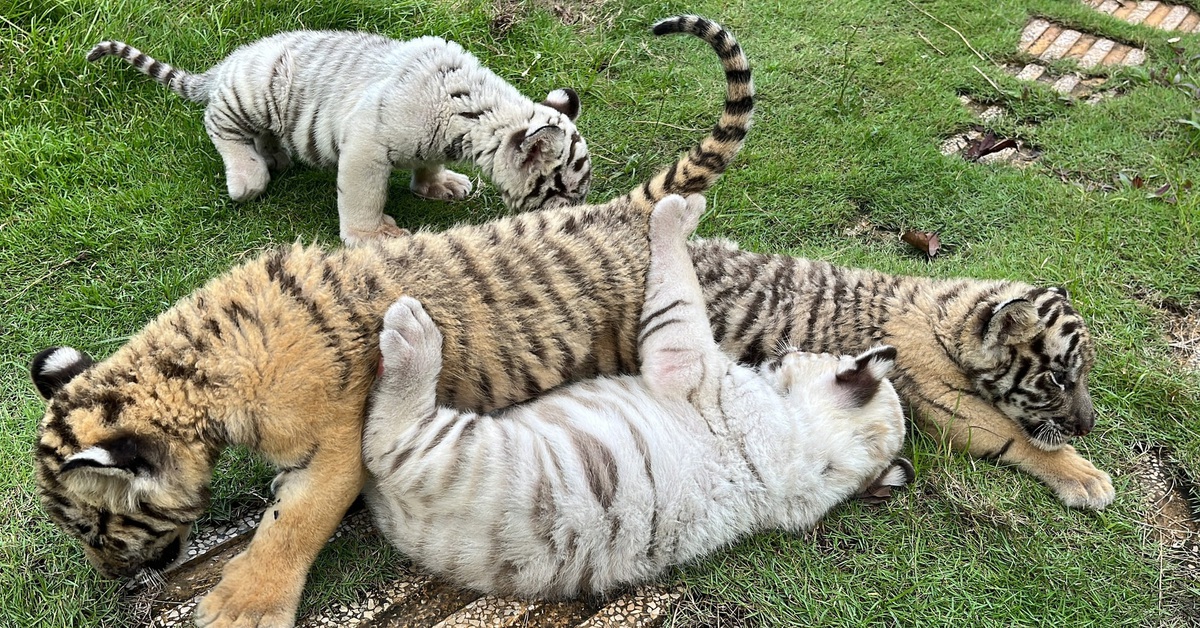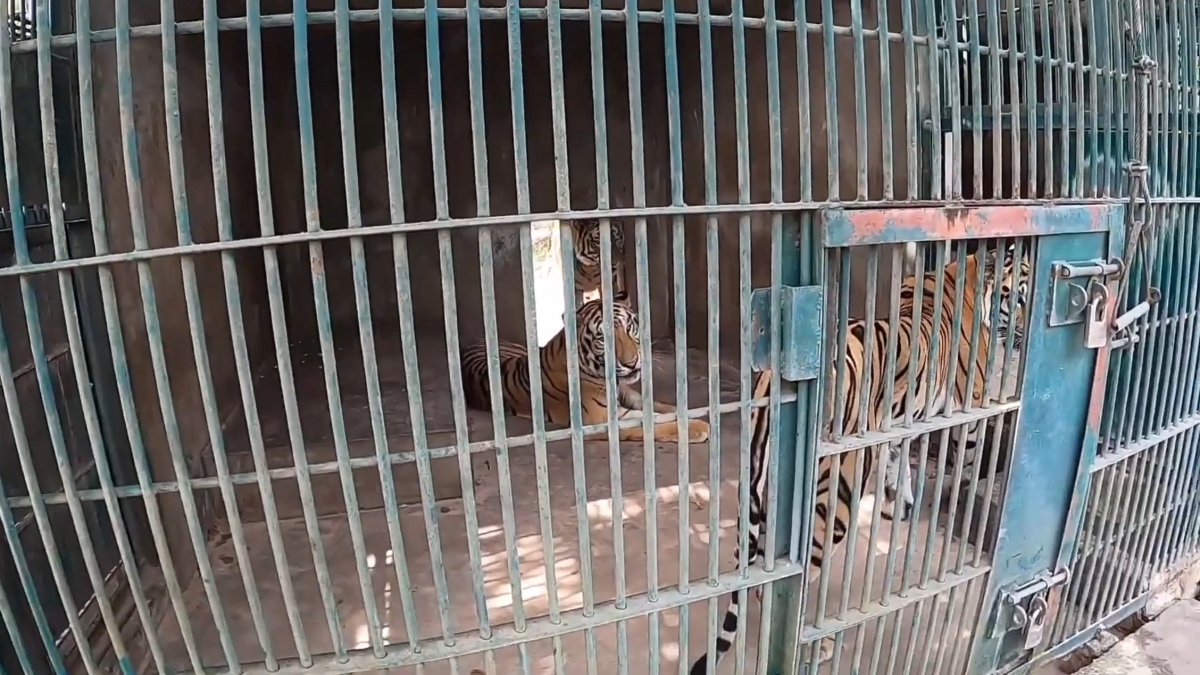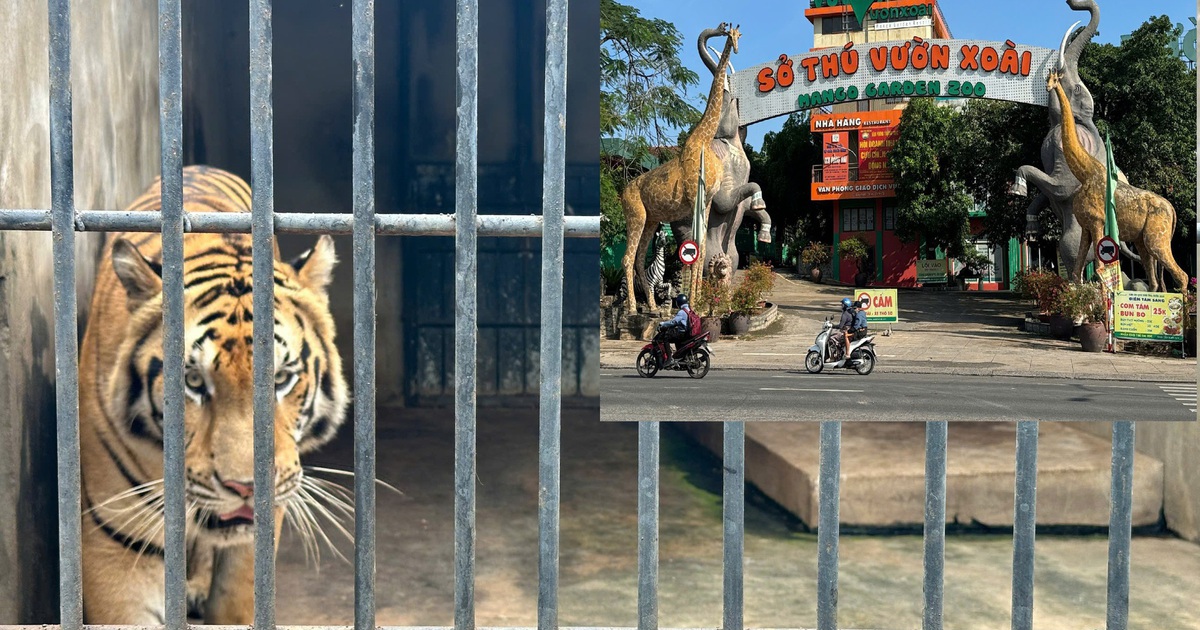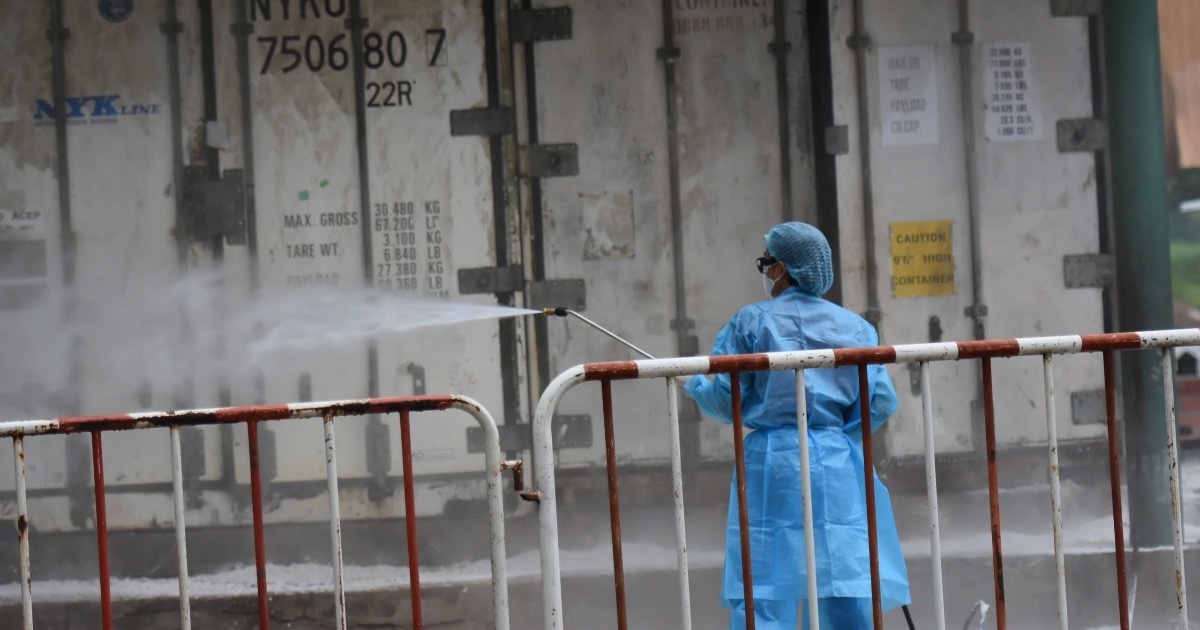Source: https://danviet.vn/ho-bao-su-tu-chet...1151311828.htm
Tiger dies suspected of being infected with A/H5N1 flu, no symptoms recorded in people exposed
Tran Khanh Tuesday, October 1, 2024 15:55 PM (GMT+7)
After many tigers died suspected of being infected with A/H5N1 flu in Long An and Dong Nai provinces, the Pasteur Institute in Ho Chi Minh City said that there have been no cases of people in close contact showing symptoms of respiratory infection.
Tiger dies suspected of being infected with A/H5N1 flu
According to the announcement on September 30 of the Pasteur Institute of Ho Chi Minh City about the recording of wild animals infected with A/H5N1 flu, the Veterinary Department of Region VI confirmed the death of a tiger and the positive test result for A/H5N1 flu virus at My Quynh Zoo (Long An) and the death of a tiger of unknown cause at Vuon Xoai tourist area (Dong Nai).
At the same time, the Pasteur Institute also received a report from the Long An Province Center for Disease Control on the results of an investigation into people in close contact with animals infected with A/H5N1 influenza.
Specifically, from August to September 16, at My Quynh Zoo (Tan My Commune, Duc Hoa District, Long An), 30 tigers and lions died (27 tigers and 3 lions).
Of these, 3 tigers were newly imported from the Mango Garden Eco-tourism Company Limited, Bien Hoa City (Dong Nai) on September 6. The remaining individuals originated from the zoo.
On September 11, the Central Veterinary Diagnosis Center issued Test Result Response Form No. 6460/CD-XN regarding the detection of avian influenza virus A/H5N1 in tiger specimens collected at this zoo (August 16).
In Dong Nai, according to quick information from the Veterinary Department of Region VI in the Vuon Xoai eco-tourism area, 11 Bengal tigers and 1 black panther have died.
Staff of the Bien Hoa City Animal Husbandry and Veterinary Station conducted clinical examinations and random autopsies on the two dead tigers mentioned above.
Initial diagnosis of the two Bengal tigers that died was suspected to be due to pneumonia. The cause of death has not yet been determined.
Long An province identified 3 My Quynh zoo employees who had direct contact with tigers, and in Dong Nai province, preliminary information shows that about 30 people had contact with tigers.
Currently, authorities have not recorded any close contacts showing symptoms of respiratory infection.
Mr. Nguyen Vu Thuong - Deputy Director of the Pasteur Institute of Ho Chi Minh City said that the Institute is continuing to direct and support the Centers for Disease Control of Long An and Dong Nai provinces to respond to the control and limit the risk of the virus spreading to humans.
Tiger dies suspected of being infected with A/H5N1 flu, no symptoms recorded in people exposed
Tran Khanh Tuesday, October 1, 2024 15:55 PM (GMT+7)
After many tigers died suspected of being infected with A/H5N1 flu in Long An and Dong Nai provinces, the Pasteur Institute in Ho Chi Minh City said that there have been no cases of people in close contact showing symptoms of respiratory infection.
Tiger dies suspected of being infected with A/H5N1 flu
According to the announcement on September 30 of the Pasteur Institute of Ho Chi Minh City about the recording of wild animals infected with A/H5N1 flu, the Veterinary Department of Region VI confirmed the death of a tiger and the positive test result for A/H5N1 flu virus at My Quynh Zoo (Long An) and the death of a tiger of unknown cause at Vuon Xoai tourist area (Dong Nai).
At the same time, the Pasteur Institute also received a report from the Long An Province Center for Disease Control on the results of an investigation into people in close contact with animals infected with A/H5N1 influenza.
Specifically, from August to September 16, at My Quynh Zoo (Tan My Commune, Duc Hoa District, Long An), 30 tigers and lions died (27 tigers and 3 lions).
Of these, 3 tigers were newly imported from the Mango Garden Eco-tourism Company Limited, Bien Hoa City (Dong Nai) on September 6. The remaining individuals originated from the zoo.
On September 11, the Central Veterinary Diagnosis Center issued Test Result Response Form No. 6460/CD-XN regarding the detection of avian influenza virus A/H5N1 in tiger specimens collected at this zoo (August 16).
In Dong Nai, according to quick information from the Veterinary Department of Region VI in the Vuon Xoai eco-tourism area, 11 Bengal tigers and 1 black panther have died.
Staff of the Bien Hoa City Animal Husbandry and Veterinary Station conducted clinical examinations and random autopsies on the two dead tigers mentioned above.
Initial diagnosis of the two Bengal tigers that died was suspected to be due to pneumonia. The cause of death has not yet been determined.
Long An province identified 3 My Quynh zoo employees who had direct contact with tigers, and in Dong Nai province, preliminary information shows that about 30 people had contact with tigers.
Currently, authorities have not recorded any close contacts showing symptoms of respiratory infection.
Mr. Nguyen Vu Thuong - Deputy Director of the Pasteur Institute of Ho Chi Minh City said that the Institute is continuing to direct and support the Centers for Disease Control of Long An and Dong Nai provinces to respond to the control and limit the risk of the virus spreading to humans.













Comment